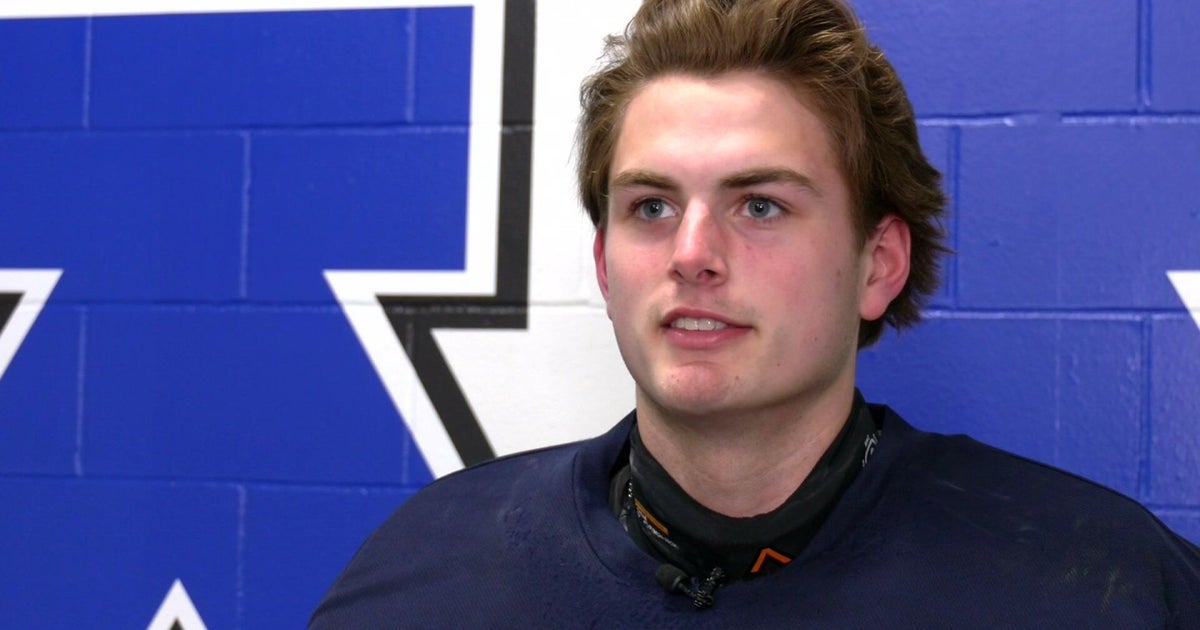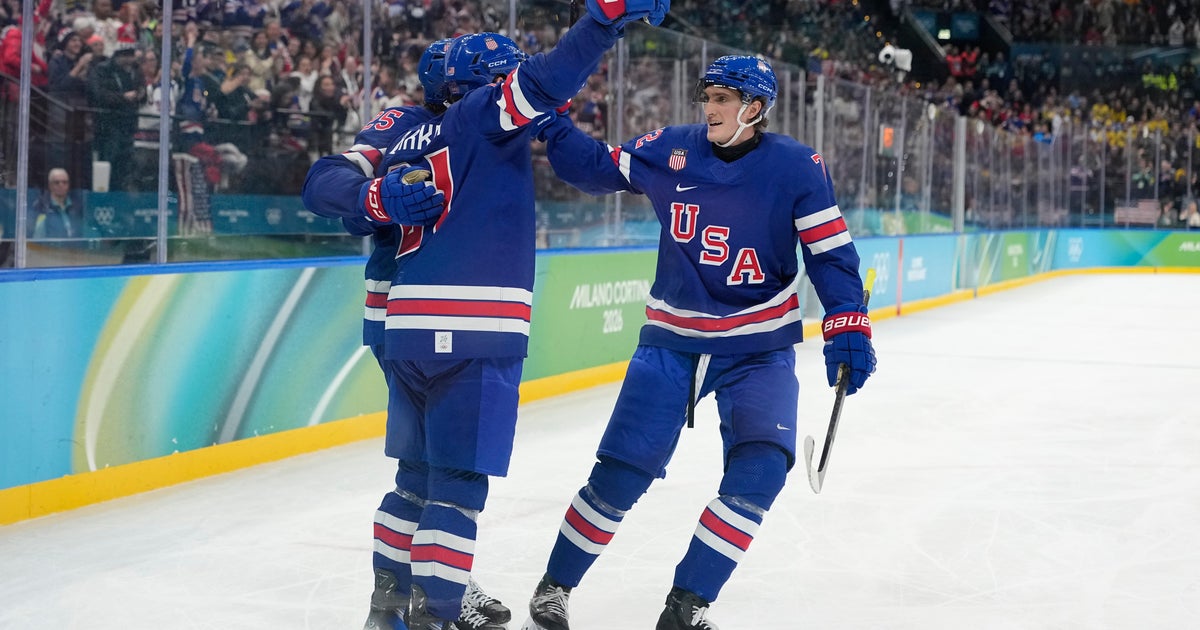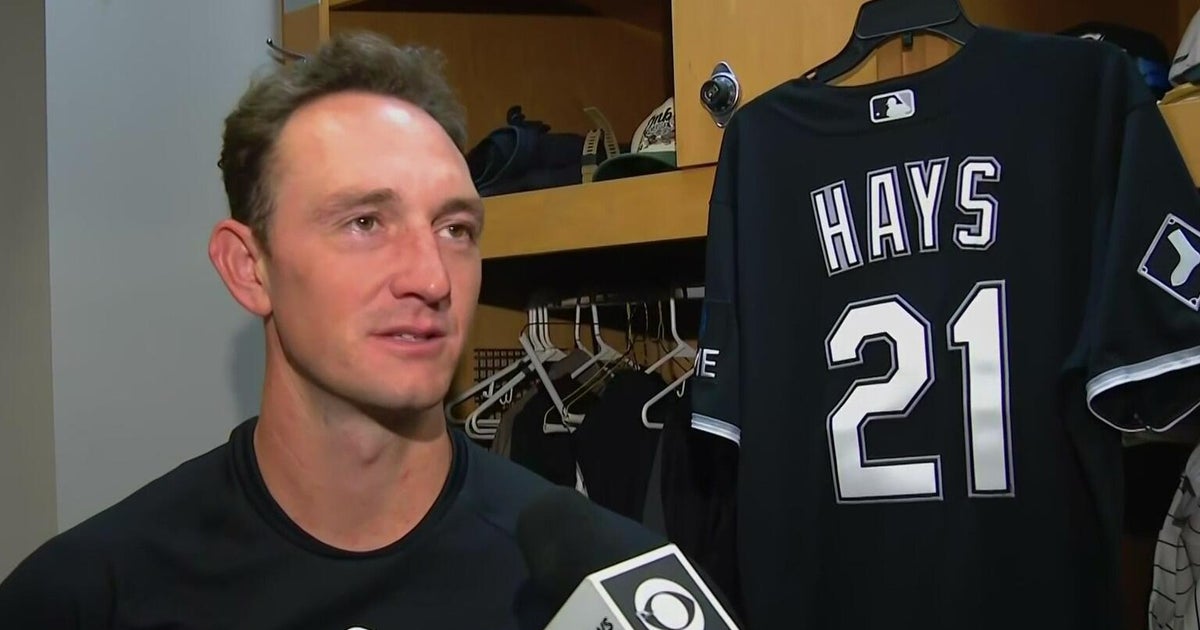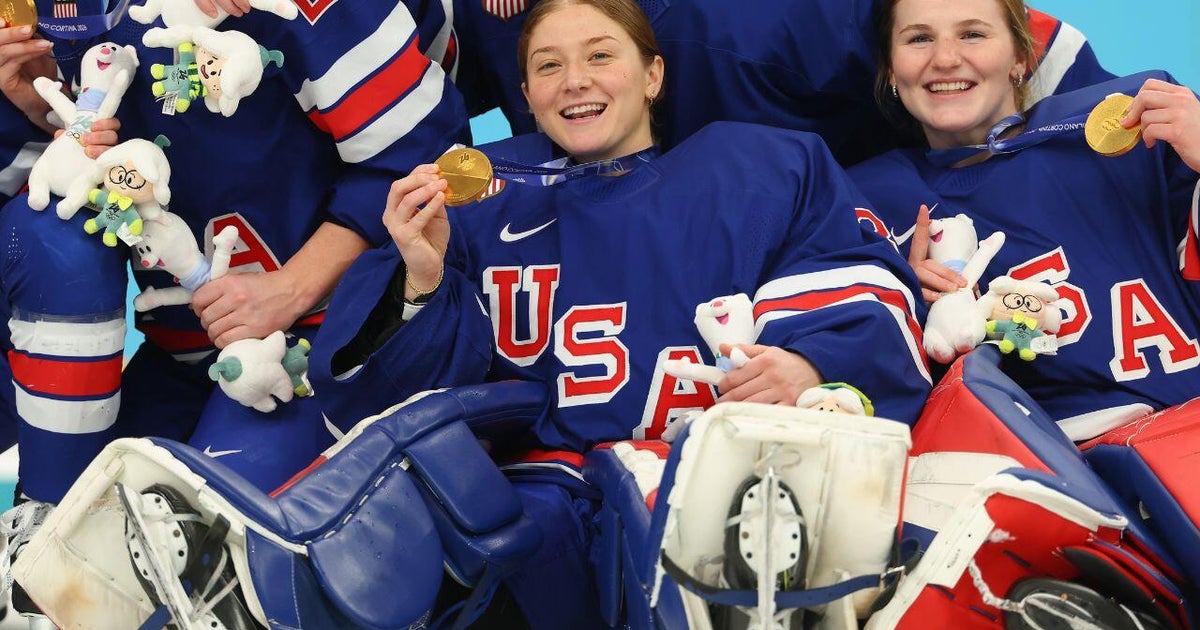Here Are Some Facts About Tuukka Rask In The Playoffs
By Michael Hurley, CBS Boston
BOSTON (CBS) -- For various reasons, the mere mention of Tuukka Rask makes people go crazy. Truly. It's a bit much.
The netminder for the Boston Bruins has been on the roster full-time for nearly a decade. In that time, he's put forth some objectively stellar play that's earned him a Vezina Trophy and has seen him maintain the very-best career save percentage in NHL history. Despite that, to a large segment of fans and followers, the jury remains out on the goaltender. Fair or unfair, that has to do with Rask's lack of Stanley Cups as a starting goaltender.
Some might say that's a lofty standard by which to judge a goaltender. A goalie is ultimately the last line of defense, but there's still often only so much he can do to conjure wins from losses. At the same time, winning tends to be all that matters and what gets remembered most.
As such, with the Bruins gearing up for what could be a very long postseason run, discussions have begun about how the Bruins might fare with Rask in net. Some people won't believe in the goaltender until he wins a Stanley Cup. (That technically removes all meaning from the word "believe," but that's neither here nor there.) Others might call upon his work in the 2013 postseason as evidence that he can play at an absurd level against the best competition. And the two sides seem to be planning on fighting each other until the end of time, or until Rask hoists the Cup over his head (at which point they will easily find something else to fight about).
Frankly, the incessant arguing and debating can be exhausting. Rather than contribute to the commotion, I've chosen to grab some facts and information and display them here online. It's an alternative approach in 2018, but maybe it's worth a shot.
Here goes.
Since the 2010 postseason, Rask has started 53 postseason games. The ending of that 2010 postseason remains indelible on the minds of Bruins fans, when a 23-year-old Rask allowed 15 goals over the final four games and posted an .874 save percentage as the Flyers made history and rallied all the way back from a 3-0 series deficit and a 3-0 deficit in Game 7. It was grisly.
But fair is fair, and in an examination of Rask's postseason performance, even that 2010 collapse must be included. So, among NHL goalies with 50 postseason games played since 2010, here are some rankings:
Save Percentage Since 2010
- Braden Holtby, .932
- TUUKKA RASK, .928
- Henrik Lundqvist, .926
- Jonathan Quick, .921
- Corey Crawford, .919
- Pekka Rinne, .917
- Antti Niemi, .905
- Marc-Andre Fleury, .903
Even Strength Save Percentage Since 2010
- TUUKKA RASK, .936
- Henrik Lundqvist, .934
- Braden Holtby, .932
- Pekka Rinne, .929
- Jonathan Quick, .925
- Corey Crawford, .923
- Antti Niemi, .918
- Marc-Andre Fleury, .915
Postseason Goals-Against Average Since 2010
- Braden Holtby, 2.00
- TUUKKA RASK, 2.12
- Henrik Lundqvist, 2.17
- Jonathan Quick, 2.27
- Corey Crawford, 2.28
- Pekka Rinne, 2.35
- Antti Niemi, 2.77
- Marc-Andre Fleury, 2.79
Not bad.
Of course, the 2010 postseason ended poorly for Rask and the Bruins. And fresh off hip surgery to rejuvenate his career, Tim Thomas quickly seized the starting job back from Rask the following season. Thomas put forth a Vezina-winning season and then led the Bruins to their first Stanley Cup victory in 39 years. His performance that postseason was exceptional, and the championship that Thomas won is likely the biggest culprit to the migraine that has become The Rask Discussion™ over the past five or so years.
Those who hold Thomas' 2011 postseason in high esteem while simultaneously harboring negative feelings toward Rask's playoff track record would probably be interested to know this:
Tim Thomas, 2011 Postseason
.940 save percentage
.949 even-strength save percentage
1.98 GAA
16-9 record, 25 games playedTuukka Rask, 2013 postseason
.940 save percentage
.945 even-strength save percentage
1.88 GAA
14-8 record, 22 games played
Yes, once Thomas vanished from Boston after a Game 7 overtime loss on home ice to Washington in the spring of 2012, Rask was dynamite. He posted a .929 save percentage and 2.00 GAA in the lockout-shortened regular season, and he managed to be even better in the playoffs. In the second round, he faced a Penguins team that ranked No. 1 in goals scored during the regular season, when they averaged 3.4 goals per game. In four playoff games against Boston, they scored just two goals. Total. Rask stopped 134 of 136 shots, 27 of which came on the power play and 34 of which came from the duo of Sidney Crosby and Evgeni Malkin, and the Bruins swept away the Penguins.
As you might imagine, starting the stats from Rask's second go-round as a postseason starter does help improve his standing a bit. So here's a look at postseason goaltending stats since 2013, with a minimum of 40 games played:
Postseason Save Percentage Since 2013
- TUUKKA RASK, .934
- Braden Holtby, .931
- Henrik Lundqvist, .925
- Corey Crawford, .920
- Pekka Rinne, .918
- Jonathan Quick, .917
- Marc-Andre Fleury, .915
Postseason Even-Strength Save Percentage Since 2013
- TUUKKA RASK, .944
- Henrik Lundqvist, .934
- Braden Holtby, .929
- Pekka Rinne, .927
- Jonathan Quick, .925
- Corey Crawford, .923
- Marc-Andre Fleury, .921
Postseason GAA Since 2013
- TUUKKA RASK, 1.97
- Braden Holtby, 2.01
- Henrik Lundqvist, 2.25
- Corey Crawford, 2.27
- Pekka Rinne, 2.30
- Jonathan Quick, 2.36
- Marc-Andre Fleury, 2.58
By those measures, it would appear as though Rask has been the best postseason goaltender in the NHL since 2013. You might say, "OK, but the 2013 postseason run was absurd. Surely, since then, it's been nothing but a calamity in net for the Bruins in the playoffs. Right? Yes. I am right."
Well ...
Postseason Save Percentage Since 2014 (min. 18 games)
- Craig Anderson, .932
- Braden Holtby, .932
- Matt Murray, .928
- Ben Bishop, .926
- TUUKKA RASK, .925
- Martin Jones, .925
- Henrik Lundqvist, .923
- Jake Allen, .922
- Carey Price, .922
- Marc-Andre Fleury, .920
Postseason Even-Strength Save Percentage Since 2014 (min. 18 games)
- TUUKKA RASK, .943
- Jake Allen, .938
- Craig Anderson, .936
- Martin Jones, .935
- Matt Murray, .935
- Carey Price, .935
- Ben Bishop, .934
- Braden Holtby, .932
- Henrik Lundqvist, .931
- John Gibson, .927
Postseason GAA Since 2014 (min. 18 games)
- Matt Murray, 1.95
- Braden Holtby, 1.97
- Martin Jones, 2.01
- TUUKKA RASK, 2.08
- Ben Bishop, 2.09
- Jake Allen, 2.10
- Craig Anderson, 2.11
- Carey Price, 2.20
- Henrik Lundqvist, 2.28
- Pekka Rinne, 2.30
The Bruins' playoff fate in Rask's two postseasons since 2013 has not been excellent, as they lost in the second round to the Canadiens in Game 7 back in 2014, and they lost at home in Game 6 of the first round against Ottawa last spring. Considering Rask allowed an OT goal to end that series last year, the taste remains a bit bitter for those who look back on his performance against the Senators. In reality, he posted a .937 even-strength save percentage, which was better than his .919 mark during the regular season. Nevertheless, they lost the series, and that's been the lasting story from the 2017 season.
At this point, after being walloped with facts and information, those who typically remain firmly entrenched in feelings over information will protest thusly: "Those are just stats. Stats can lie. The FACT is that he BLEW Game 6 against Chicago and CHOKED and THEREFORE he CANNOT be TRUSTED to win PLAYOFF GAMES for the BOSTON BRUINS."
Seriously, the capitalization can get out of control. You can get yourself hurt if you're not careful.
Anyway, Rask did indeed allow a pair of goals in a span of 17 seconds, letting a 2-1 Bruins lead quickly turn into a 3-2 Blackhawks lead, thus ending the Stanley Cup Final in stupefying fashion. Now this cannot be proven, but generally, this is my feeling on that moment: most fans saw the puck go in, cursed, watched the final 59 seconds in hopes of a miraculous tying goal, cursed again, and then quickly flicked off the television set as the Blackhawks poured onto the ice in celebration, never to think about the specific goals ever again. To reiterate, there are no facts or figures to measure this, but my educated guess is that many of the folks who have uttered that haphazardly capitalized sentence above have not ever seen those goals since they took place.
I understand that reliving those goals can be painful, so I'll be as quick as possible right now.
The game-tying goal, which came with 1:16 left in the third period and with Chicago's net empty, came after Dennis Seidenberg got himself stuck out of position in the corner. The Blackhawks quickly turned it into a 3-on-1 in tight, as Milan Lucic was a tick late to recognize the situation and could not get back to break up a cross-crease pass.
Jonathan Toews fit a pass directly between the legs of Zdeno Chara, right to the tape of Bryan Bickell.
Realistically speaking there was very little, if anything, a goaltender rightfully could be expected to do to stop that goal from taking place -- except maybe get lucky and have the shot end up in his glove. Rask tried a poke-check to break up the pass, and one angle made it seem like he may have even gotten a piece. But it was not enough.
Then came the game-winning goal, about which very few people in the Boston area seem to remember the details. That goal came after a point shot from Johnny Oduya was redirected by Michael Frolik when it was halfway to the net. Rask -- who had just made a save on a weak bid by Frolik and kicked it to the corner -- had gone down to his knees in order to block the initial shot by Oduya. But again, it was redirected.
The Bruins initially caught a break after that tip, as the puck went just wide of the net. It hit the post before bouncing out toward the goalmouth. But Johnny Boychuk was ever-so-slightly out of position after drifting behind the goal line and failing to recognize Dave Bolland sneaking behind him to get to the crease. Bolland was a half-step ahead of Boychuk, and so he was in perfect position to bury the rebound.
Rask looked woefully out of position on the goal ... because he was woefully out of position. Because, again, he was trying to make a save on a point shot from Oduya. Had Rask chosen to assume Frolik would tip the shot and change its course when it was 20 feet from the net, then perhaps he could have been in better position to prevent the mayhem that ensued.
There's video documentation of this, if you care to watch it, but not many people do. It happens.
Nevertheless, that is what happened at the end of Game 6. Perhaps some still consider that a "choke job" from the goaltender. (Careful: opinion forthcoming!) But perhaps they should not.
Alas, that is the lasting story on Rask at this moment in time. Every big save and big game he's made in recent years has been trumpeted as an indication of his inherent greatness. Every soft goal he's allowed or rough stretch he's endured has been identified as being a look at the real Tuukka Rask. He's been vilified for getting sick -- "both ends" -- and missing a regular-season finale with a playoff trip hanging in the balance. Yes, many fans would have rather seen Rask leak various liquids in his crease while trying to play hockey at the highest possible level than see a capable backup play the game.
That's been the story on Rask. And through it all, the refrain remains the same: Can't win a Cup!
Again, so much of that goes back to what Thomas did in 2011. He set a new standard and he brought a championship to a franchise that desperately needed one. And he did it with a spectacular diving save on Steve Downie, and an insane right-to-left lunge to stop Brian Gionta in double overtime of a playoff game, and with a shutout in Game 7 of the conference finals and another shutout in Game 7 of the Stanley Cup Final. He also lowered the boom on Henrik Sedin and Alex Burrows. And he accidentally ignited a captivating war of words with Roberto Luongo for good measure.
What Tim Thomas did in the spring of 2011 was remarkable. He authored some of the best moments in Bruins history since the days of Bobby Orr. The highs were incredibly high, and over the course of history, they have proven to overshadow some of the lows. Remember, in that postseason, he allowed 11 goals in the first four games against Montreal, posting a .908 save percentage. He recovered to help win that series and the second-round sweep over Philadelphia, but he then allowed nine goals in the first two games against Tampa Bay. In Game 6 of those conference finals, with a chance to punch a ticket to the Cup Final, Thomas allowed five goals on 26 shots; the Bruins lost 5-4. He also appeared more intent on delivering a body check to Burrows instead of preventing him from scoring an overtime goal in Game 2 of the Finals.
Of course -- of course! -- despite that Game 2 goal, Thomas was unbelievable over his final eight playoff games. But what the emotional surge of winning tends to do is wash out some of those less-spectacular moments. In reality, if not for a fortunate bounce off Jeff Halpern in overtime, and if not for a perfectly executed 150-foot play in Game 7 against Tampa, then it would have been likely that Thomas' 2011 postseason performance would have been remembered very differently. Likewise, people just might have a little more confidence in the postseason version of Rask, given what he's already been able to prove.
You can email Michael Hurley or find him on Twitter @michaelFhurley.







